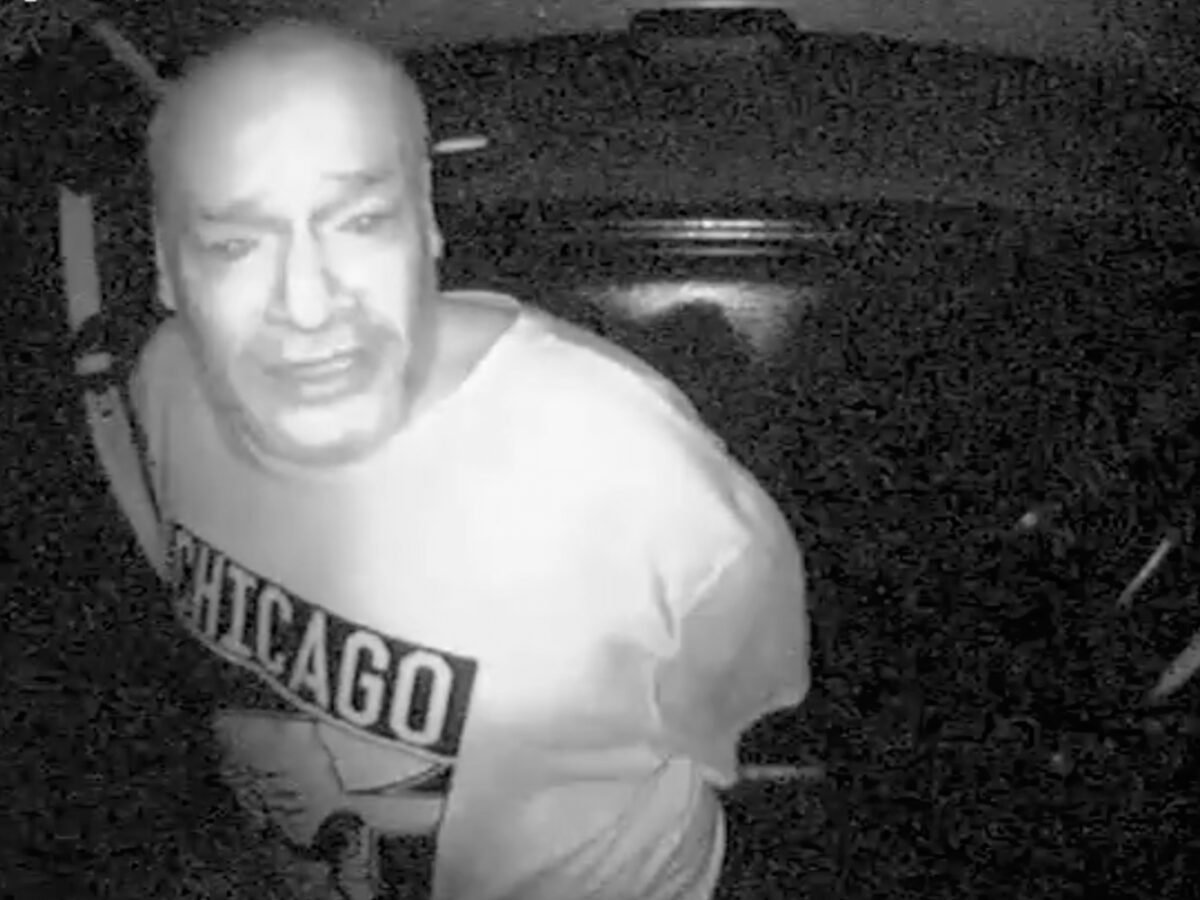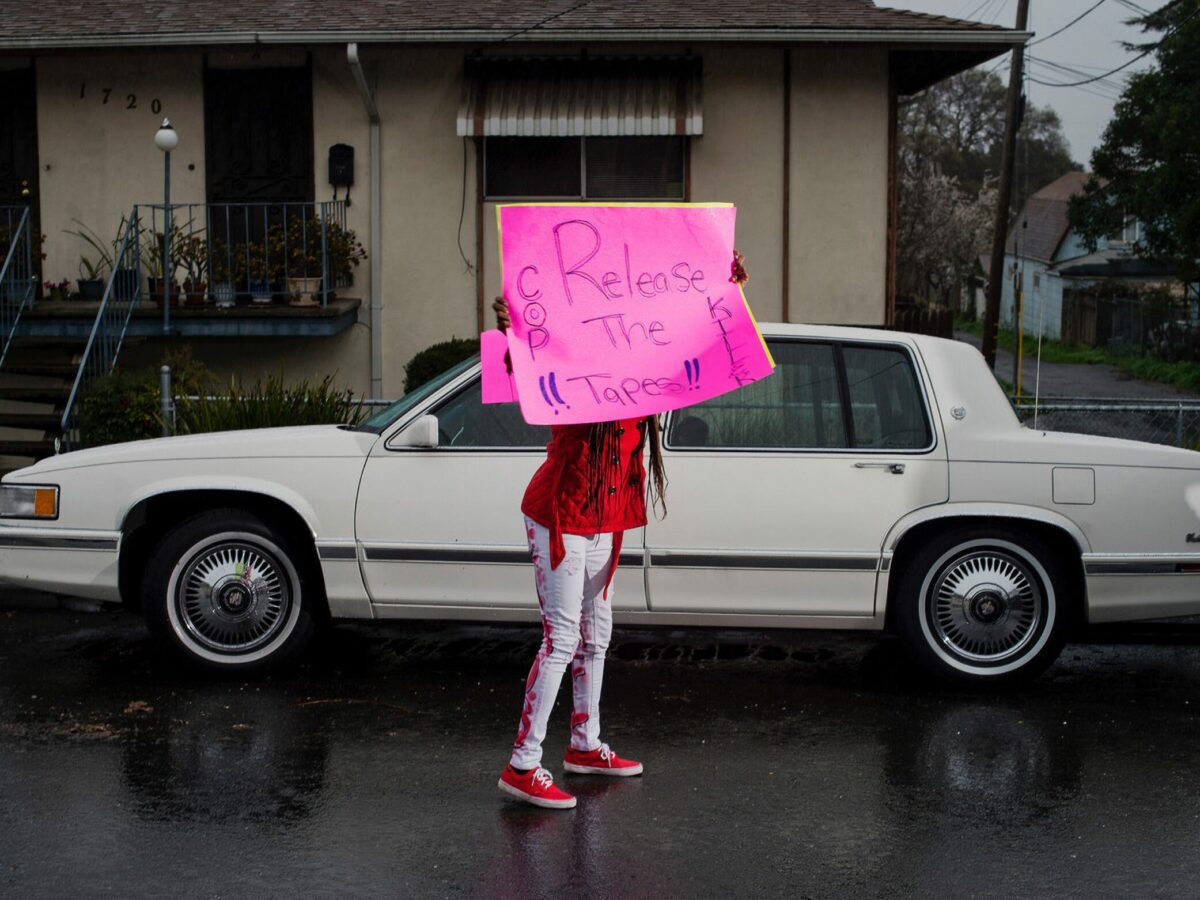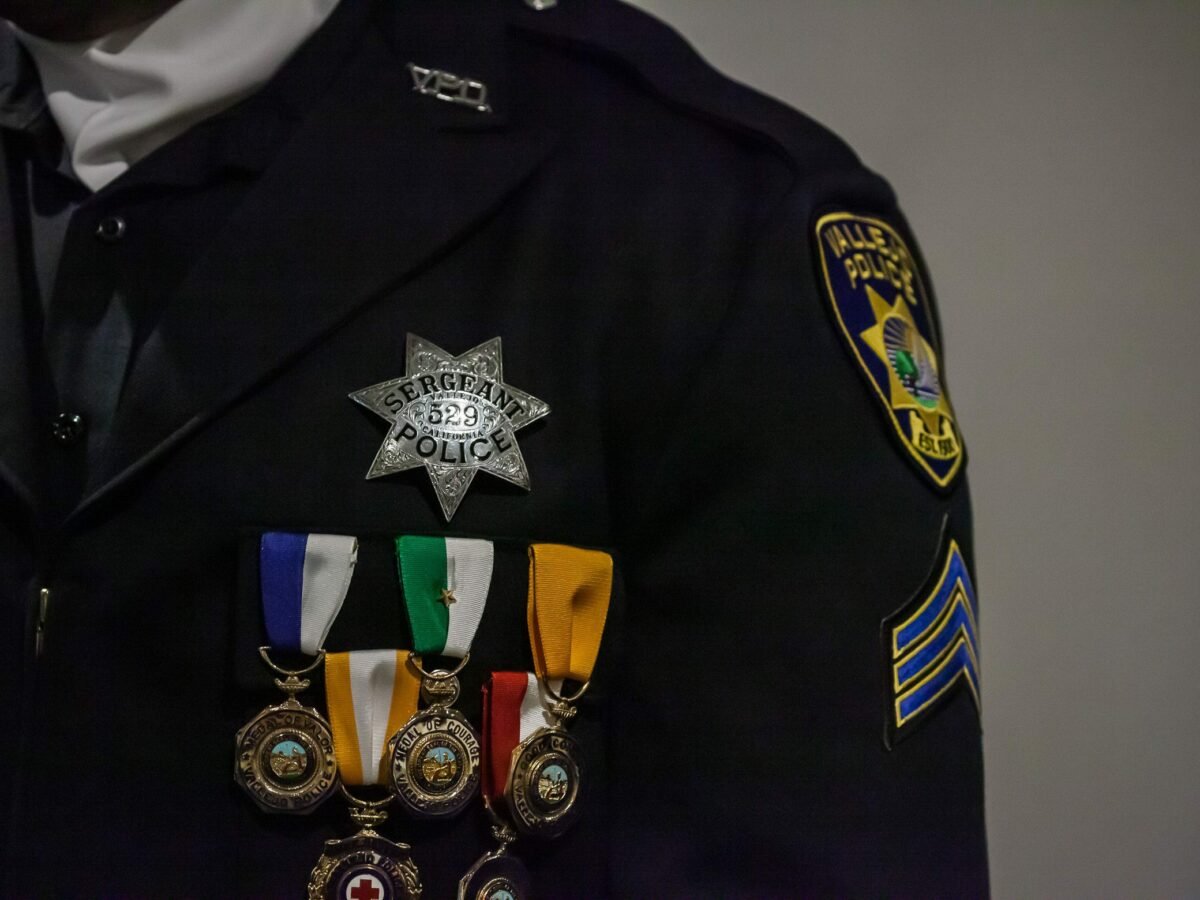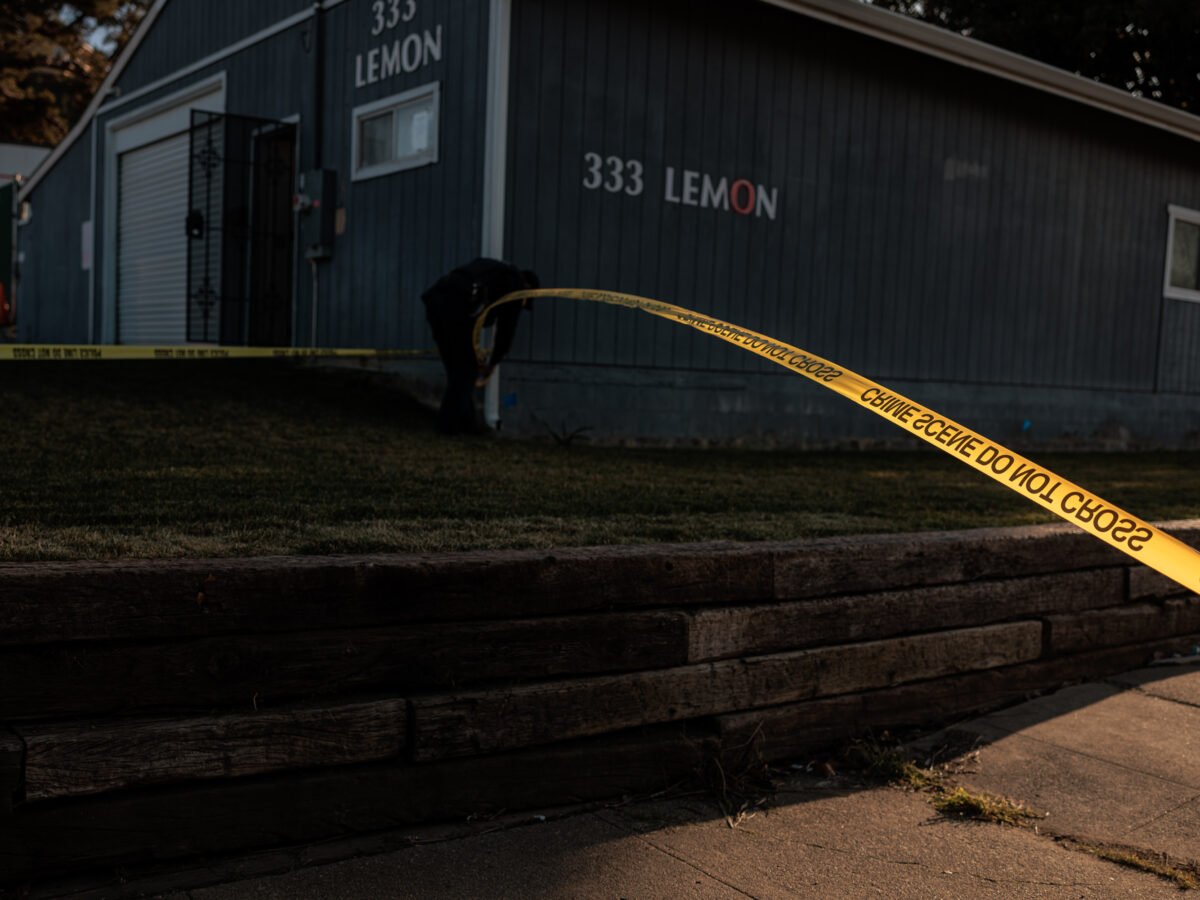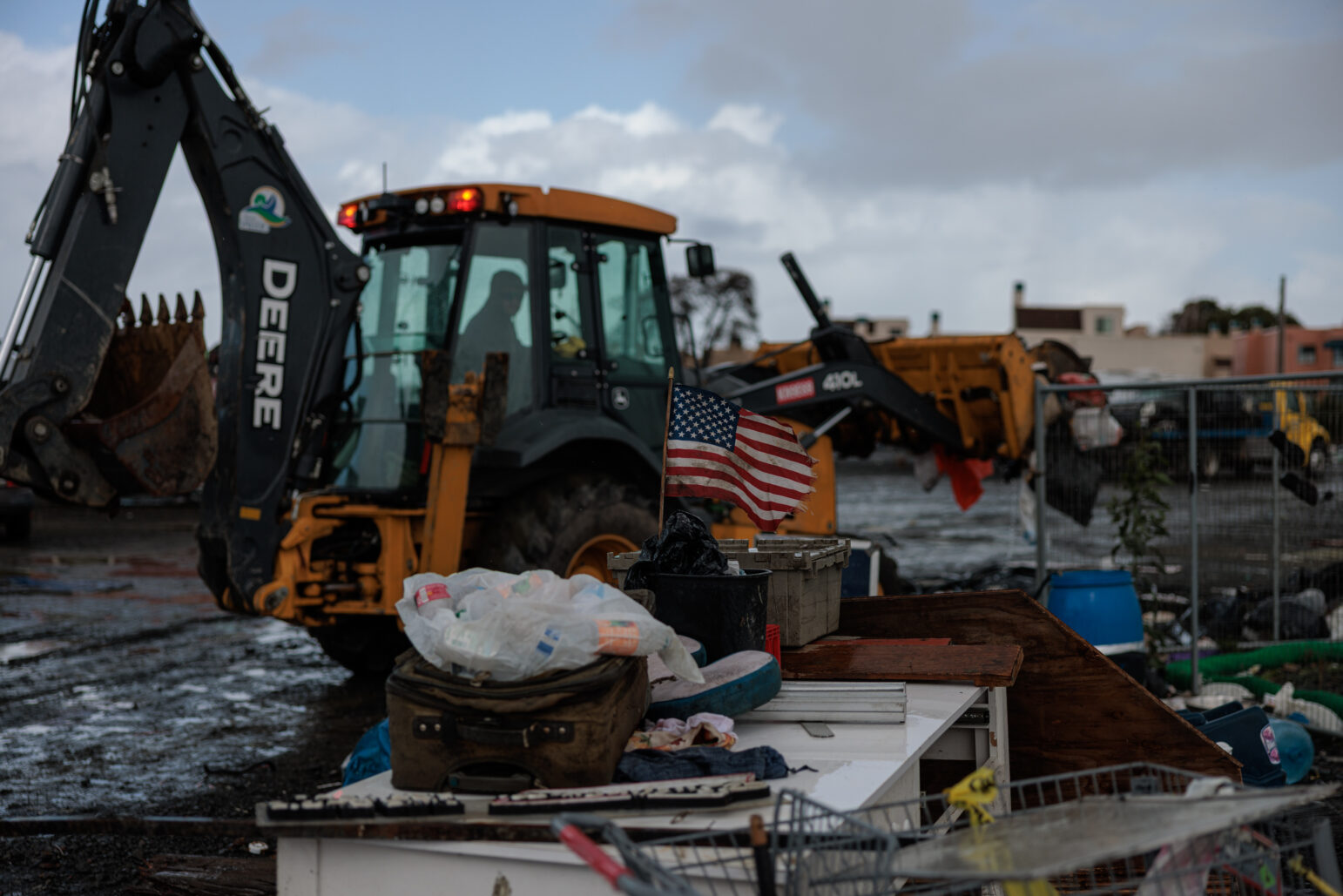
An unhoused man killed on Christmas Eve was seen alive just hours before being crushed to death by a Vallejo Public Works backhoe, and was surrounded by personal effects when he died, according to newly-released records obtained by Open Vallejo through a public records request.
To date, the city of Vallejo has spoken only in vague terms about the circumstances surrounding the death of James Oakley II, who city officials have thus far declined to name. But a coroner’s investigation released Monday sheds new light on Oakley’s killing and reveals apparent contradictions between what city workers told police, and what investigators discovered upon arriving at the scene.
Oakley had been lying atop a mattress under blankets and several items of clothing when a city employee pressed down on him with the bucket of the city-owned backhoe, the investigation found. The backhoe operator then scooped up a pile of debris and began moving it toward a dump truck. Another member of the work crew then spotted Oakley’s leg dangling from the bucket of the backhoe.
The Solano County Coroner’s Office found on Jan. 21 that Oakley died of blunt force injuries inflicted by the machine.
City workers who reported the incident to Vallejo police told investigators they found a mattress covered by what they described as a large tarp, which the author of the report, Solano County Sheriff’s Deputy Jessica Dew, later observed to be a pile of blankets. The crew also found several totes, bags of trash and a shopping cart nearby, according to the report.
Crewmembers kicked the mattress and shouted to ask if anyone was inside, according to the report. Receiving no response, and without lifting the blankets, the backhoe operator then pressed down on the pile, killing Oakley.
The crew had unloaded Oakley from the backhoe by the time Dew arrived. She found Oakley with numerous injuries, including “a deep indentation” in his back, along with multiple abrasions and contusions; his “left leg was turned inward awkwardly and appeared broken.” Dew also noted blood inside the bucket of the backhoe. Oakley’s body was warm to the touch, she wrote.
Dew determined that Oakley was on the mattress and under the blankets when the crew began removing the trash pile. A Recology waste management crew also told Vallejo police at the scene they had planned to clear the same pile earlier that morning, but saw a person alive with the items and decided to leave, according to the death investigation report.
The Solano County District Attorney’s Office declined to press charges citing insufficient evidence, following a Vallejo police investigation that found no evidence of intent to cause injury or death. In a press release on Feb. 24, City Manager Andrew Murray called Oakley’s death a “tragic incident.”
Open Vallejo filed a public records request on March 3 for the Vallejo police investigation and other city records related to Oakley’s death. The city, which has up to 10 days to respond, has yet to produce any records.
City spokesperson Sharon Lund did not immediately respond to comment. Vallejo police spokesperson Rashad Hollis was not immediately available for comment.
Oakley’s death has sparked concern and outrage among homeless advocates, with some calling for a moratorium on all encampment sweeps. On Tuesday, organizers with the Vallejo Homeless Union, mixedkollective and POOR Magazine held an emergency prayer ceremony and press conference at the steps of City Hall.
Oakley was once a star athlete at Vintage High School in Napa, according to the Napa Valley Register. During his athletic career he earned numerous accolades, including being named to the all-Napa County and all-Monticello Empire league teams in 1982 and 1983, and the all-county baseball team in 1984.
The once record-breaking athlete’s life began to unravel when he was arrested in 1989 for the killing of a 19-year-old Benicia man, for which he was convicted of manslaughter.
Oakley had been working as a drug informant, according to the Register, and obtained the shotgun used in the killing from a Napa County Sheriff’s deputy. However, the county denied that he was working as an informant at the time of the killing.
Since Oakley’s death, an organization called Low-Income Residents of Vallejo said they have been in contact with Murray to discuss feedback on future homelessness policies. The group emailed the city on Feb. 25, calling the incident “horrifying and unacceptable,” according to a Facebook post by the group.
“We can’t allow another situation like this to ever happen again, and the general public — which includes our unhoused residents — deserves transparency,” the group wrote in its email to the city.

